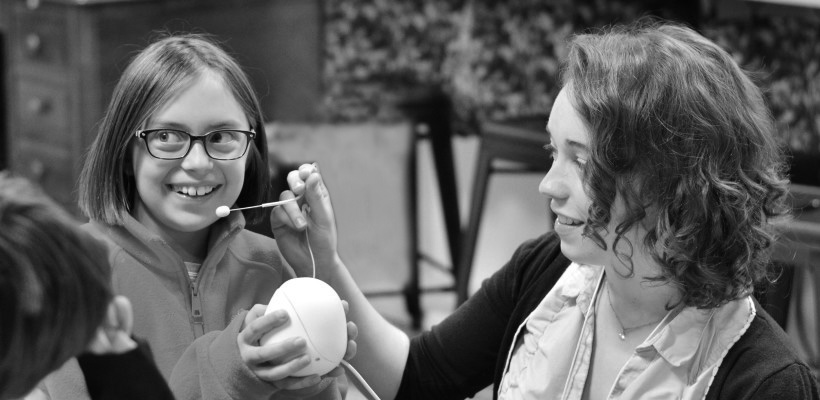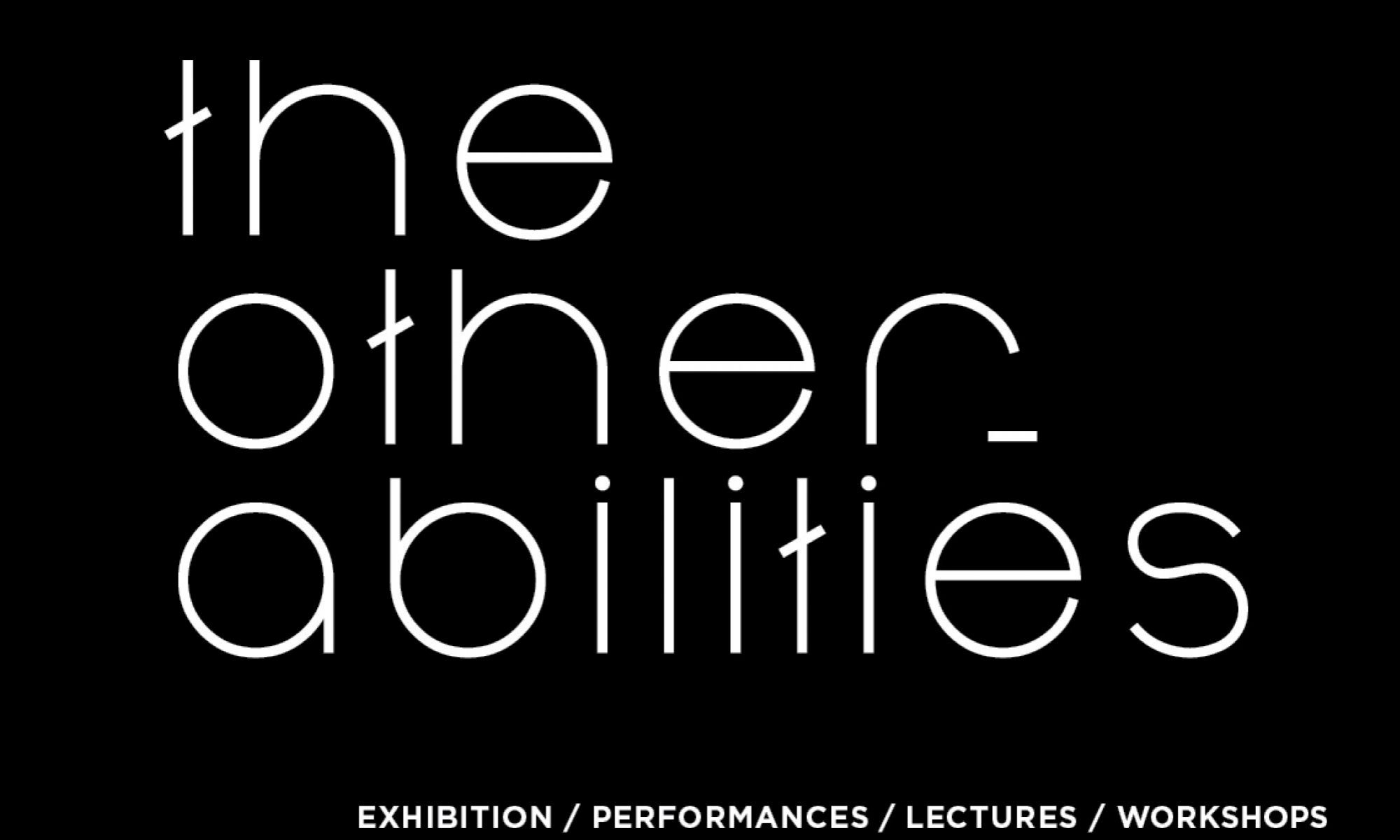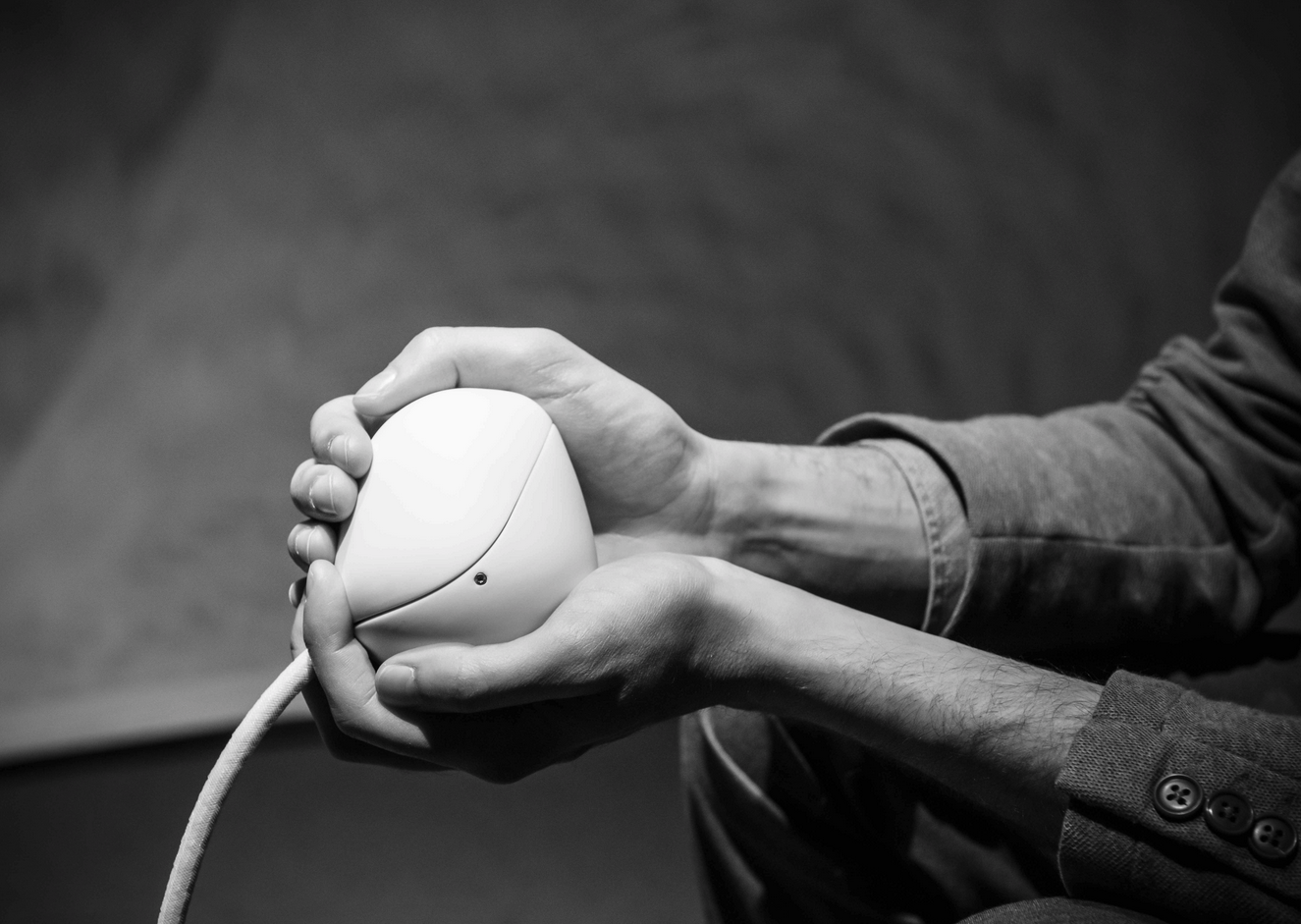Installation and talk: Rebecca Kleinberger
THE ORB
The ORB is a voice-based vibrating device, which maps the voice signal into tactile vibrating sensation to provide awareness of physical processes involved in the vocal production process. Because fingertips contain more sensory receptors than our vocal vibrating chamber, holding the ORB while vocalizing gives access to elements of individuality and affect that often remain latent in the everyday experience of voice. The ORB has inspired a whole generation of new tools and prototypes to tackle different challenges in domains such as tool design for the deaf community, the design of HCI interfaces for speech disorder treatment or prosody and language acquisition for children, or in the domain of well-being and sub-clinical treatment of depression and mental health.
ABOUT THE LECTURE
The scope of many past and present research has included the examination of methods for the creation of interactive voice-based experiences that foster connection between individuals, generations, species, and even between different parts of the self. In the last few decades, our understanding of the vocal signal has greatly improved, but each disconnected field looks at the voice through a rather narrow lens. For instance, speech recognition technologies mainly take into account the verbal content from the vocal message, the phonologists focus on the functional use of sounds in language, and emotion recognition research tends to limit the scope of research to simplified discrete affect categories. From their side, medical doctors and biologists care about the health of the mechanics and tissues of the voice box, and artists and musicians regard the voice as an instrument to transmit musical content, etc. Though words, sounds, emotions, artistic expression, and health are important components of the voice, none of them individually reflects the full richness of the voice nor the full meaning of the vocal signal that has the power to touch all our senses and even more. The main questions of the lecture shall be the possibilities for bridging all those different fields in order to create new types of vocal experiences and reach a more meaningful understanding of the voice and its potential for connection and expression.

Rebecca Kleinberger is the mother of hedgehogs and a PhD candidate doing research at the MIT Media Lab. Rebecca graduated from École National des Arts et Métiers in Paris with a Masters of Mechanical Engineering, and from University College London with a Master of Research in Virtual Environments, Imaging and Visualization. She is home-schooled in the art of raising hedgehogs.
Her work mixes science, engineering, design and art to explore ways to craft experiences for self-reflection and human connection. As part of the Opera of the Future group at the MIT Media Lab, she creates unique experiences to help people connect with themselves and with others. Through five years of work on self-reflection technologies, Rebecca has developed unique expertise on the human voice as a means of expression, both to others and within ourselves. Her research spans a wide range of fields, including neurology, human-computer interaction, psychology, cognitive sciences, physics, biology, clinical research, linguistics, communication theory and assistive technologies. This broad range of work has enabled her to create tools and experiences that help people discover more about themselves through the uniqueness and expressivity of their own voice.

